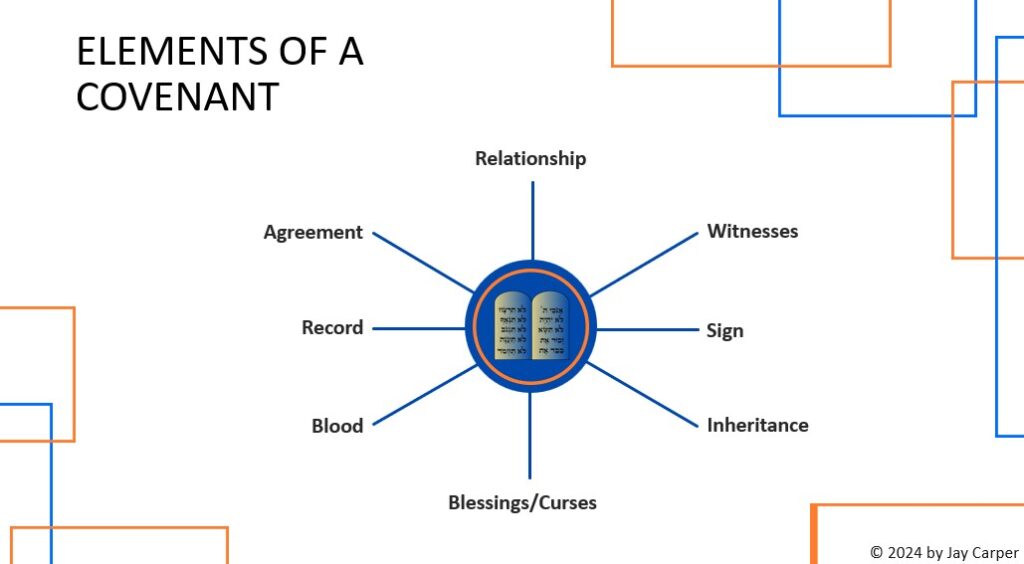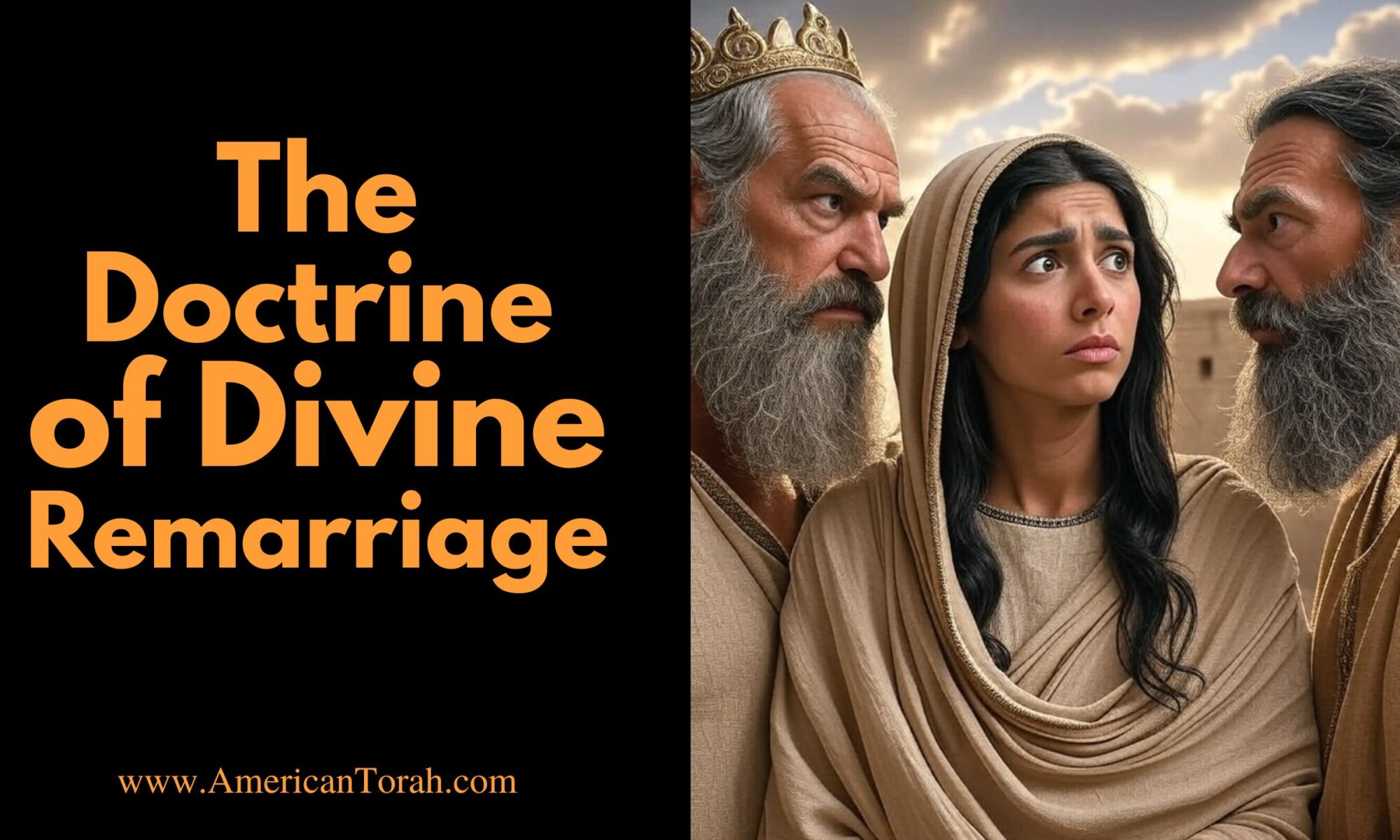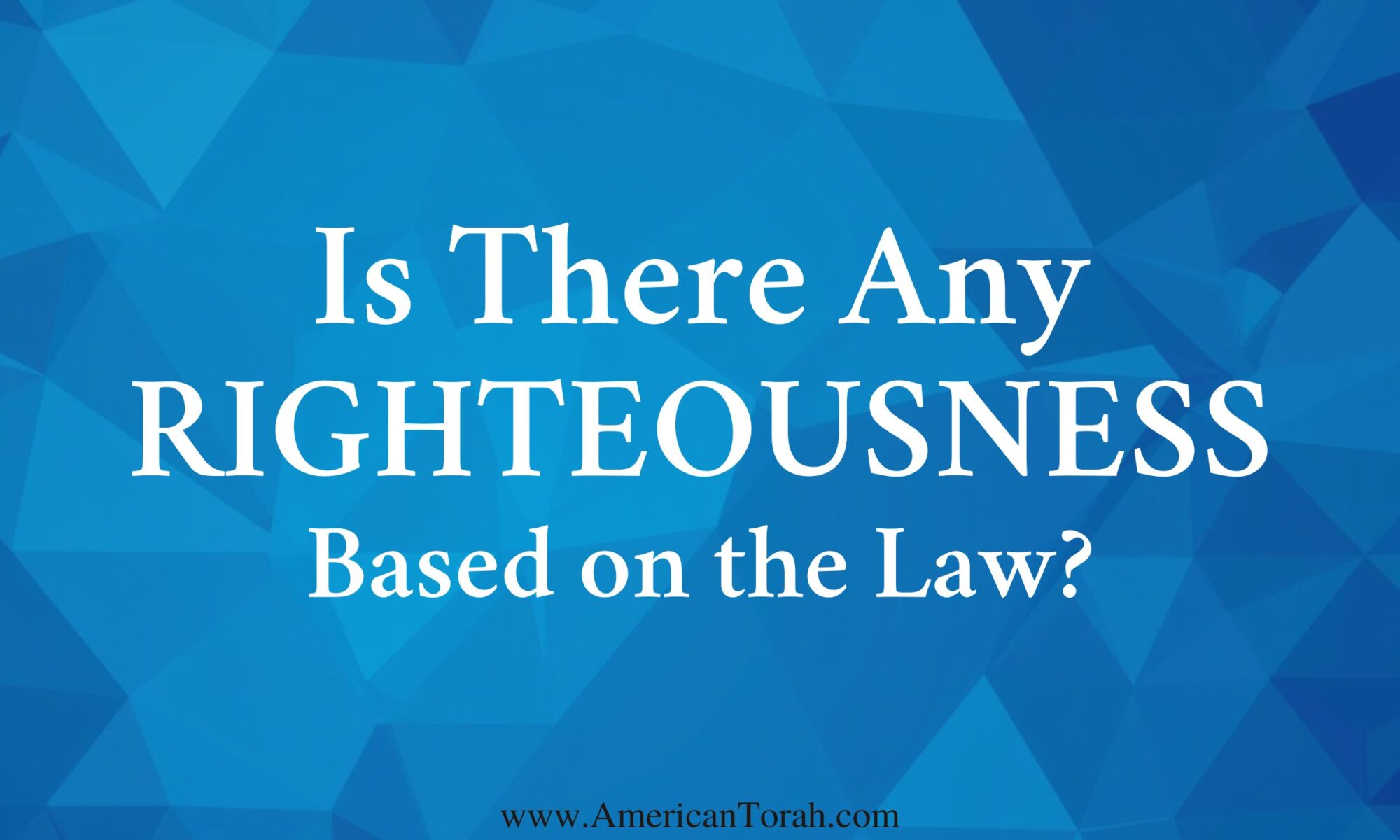There is a doctrine gaining popularity recently that I refer to as The Doctrine of Divine Remarriage. The short version of this doctrine goes like this:
The Sinai Covenant after the Exodus from Egypt was a marriage between YHWH and Israel. Centuries later, the Kingdom of Israel broke into two kingdoms: Ephraim in the north (sometimes called Israel, Samaria, Shomron, or the Ten Lost Tribes) and Judah in the south. Ephraim fell into idolatry–a kind of spiritual adultery–so YHWH divorced her and let Assyria conquer her and send her into exile from the land.
While in exile, Ephraim made a new covenant (i.e. marriage) with a pagan deity. Deuteronomy 24:1-4 says that if a man divorces his wife, who then marries another man, and then the second man divorces her, the first man can’t remarry her. “For that is an abomination before YHWH.” According to this law, YHWH cannot reunite with Ephraim. She is forever separated from her first husband.
However, Scripture also teaches that all covenant obligations (including marriage) end at death, so if YHWH could die and be resurrected, he could be remarried to Ephraim. He accomplished this by sending Yeshua (YHWH in the flesh) to die at Calvary. His death nullified the Sinai Covenant, and his resurrection enabled him to restore exiled Ephraim to relationship with him through the New Covenant.
When I first heard this idea more than 20 years ago, it sounded so…cool! The Bible clearly uses marriage as a metaphor of the relationship God has with his people, and this seems like a beautiful expression of a husband loving his wife so much that he is willing to give up his life for her. This is exactly what Paul instructed men in Ephesians 5. I love it when God’s patterns emerge in Scripture, linking texts and events that were centuries apart.
Husbands, love your wives just as Messiah also loved His community and gave Himself up for her to make her holy, having cleansed her by immersion in the word. Messiah did this so that He might present to Himself His glorious community—not having stain or wrinkle or any such thing, but in order that she might be holy and blameless.
Ephesians 5:25-27 TLV
I had some nagging doubts, though. This teaching is not given explicitly anywhere in Scripture, and there are some things about the story that I couldn’t reconcile. For example, who is the second husband that Ephraim was supposed to have married? And what does this mean for the Southern Kingdom of Judah?
Last year I took a closer look at all of the covenants in the Bible and how they related to each other, and I quickly became convinced that the Doctrine of Divine Remarriage just doesn’t work with what the Bible says. I very briefly mentioned some of my doubts about this doctrine in the video series, Covenants of Israel (YouTube link). But in this article, I’m going to address this doctrine specifically and in much more depth.
I gave a brief overview of the Doctrine of Divine Remarriage, but before I can tell you what’s really wrong with it, I need to break it down in more detail. This doctrine is usually given with the six beliefs listed below, which I will do my absolute best to present as objectively and accurately as possible. Please note that I am describing the beliefs of those who teach the doctrine under question, not my own beliefs.
Belief one: The Sinai Covenant is a marriage covenant between YHWH and Israel.
Ezekiel, Jeremiah, Hosea, and other prophets frequently use marital language to describe the covenant relationship between YHWH and Israel. See this passage, for example.
“Again I passed by and saw you, and behold, you were truly at the time of love. I spread the corner of my garment over you and covered your nakedness. I swore to you and entered into a covenant with you,” says Adonai. “So you became Mine.”
Ezekiel 16:8 TLV
Belief two: YHWH divorced Ephraim (the Northern Kingdom of Israel).
This is based on one passage from Jeremiah:
I noted that when backsliding Israel [Ephraim] committed adultery I sent her away and gave her a certificate of divorce. Yet, unfaithful Judah, her sister, did not fear. Instead she also went and committed adultery.
Jeremiah 3:8 TLV
There are two other passages that I have seen referenced, Isaiah 50:1 and Hosea 2:1-3, but neither of these are actually about divorcing Ephraim. Isaiah is addressed to Judah and says that YHWH sent away the mother of Judah, while Hosea is addressed to Ephraim but also says that YHWH sent away their mother, not Ephraim.
Some teachers include post-crucifixion grafted-in gentiles with Ephraim, but those aren’t the people that YHWH divorced in Jeremiah. The inclusion of gentiles in the promises and covenants of Israel is a separate topic. They don’t need to re-covenant with God, because they weren’t part of the original covenant and divorce.
Belief three: Ephraim made a covenant with another god
Some teachers of this doctrine don’t make this explicit, but the better ones do. This is a requirement for the Deuteronomy 24 law to apply, though, so it’s necessary for the doctrine to work.
Hosea 2 and Jeremiah 3 show that Ephraim certainly engaged in spiritual adultery in the form of idolatry prior to their exile from the land. Jeremiah 3:1 even cites the law in Deuteronomy 24 in reference to the possibility of YHWH taking back Judah who was behaving in the same manner.
I think it’s safe to assume that Ephraim continued to engage in idolatry after their exile. They were scattered far beyond the borders of Assyria and most of them eventually forgot their identity as Israel. (See this video playlist, Who Is Israel?)
This particular belief requires one of two assumptions for it to be true:
- Ephraim made an explicit covenant with a false god, but there is no record of that covenant in the Bible or historical records.
- Sexual union itself creates a marriage covenant whether there is an explicit agreement between the two parties or not. In the case of Ephraim, this would take the form of collective idolatry.
Belief four: Ephraim was divorced from that other god
I haven’t heard this belief taught by any teacher of the Doctrine of Divine Remarriage, but it is necessary for the Deuteronomy 24 law to come into play. The law is very clear that it only applies if the woman is legally divorced from her first and either legally divorced or widowed by her second husband. If she is still married to the second, then she is not free to marry anyone else, no matter who it is.
As with the covenant marriage in Belief Three, there is no historical or biblical record of Ephraim being divorced from her second husband nor of that husband having died, so it has to be assumed.
Belief five: Death nullifies all legal ties of the one who dies
This seems like common sense, and Paul says as much in Romans 7:1-7, which says in part,
Accordingly, she will be called an adulteress if she lives with another man while her husband is alive. But if her husband dies, she is free from that law, and if she marries another man she is not an adulteress.
Romans 7:3 ESV
According to this belief, all laws, debts, and covenants that bound a person in life end at death. If the person is then resurrected, he is free to carry on his life as if he had never been bound by them at all.
Belief six: YHWH died and resurrected in the person of Yeshua, enabling his remarriage to Ephraim
I am assuming that you, the reader, agree with me that Yeshua is YHWH in the flesh. If you don’t, then you probably reject this doctrine on those grounds, and this is all a moot point to you. (Please don’t try to argue about Yeshua’s divinity in the comments. This is not the place.)
I don’t think that anyone believes that remarriage to Ephraim is the only reason that Yeshua came to die. He died for the sins of the whole world, after all, not just half of Israel. However, according to the Doctrine of Divine Remarriage, this is a major secondary purpose. If he had not died, he would have been free to make a new covenant with Judah–and even the rest of the world–but Ephraim would be permanently cut off, at least from a marriage-covenant with YHWH. God promised throughout the Torah and the Prophets that he would restore Ephraim to covenant with him, this was the only way he could keep his word.

What’s wrong with the Doctrine of Divine Remarriage?
On the surface, this seems like a pretty strong argument. It appears that Beliefs Three and Four are the only ones that involve speculation and assumptions, and if the other beliefs are true, these two seem very reasonable. Unfortunately, a closer examination will reveal some problems with all six beliefs, some much more serious than others.
I’m not trying to offend anyone with this. I don’t want to hurt anyone’s feelings or make anyone look bad. My only purpose is to promote sound biblical doctrine. I know that it can be difficult to give an objective hearing to anything that contradicts a deeply held and loved belief. I’ve been there many times myself!
Here’s what I would like you to do: Consider reading the following as if you had just heard about this doctrine today and had no emotional attachment to it. Be curious. As you read, don’t assume any motives or beliefs on my part that aren’t clearly in evidence. Most of all, check everything I say against Scripture–not against what you think you remember is in the Bible, but what is actually there.
One: Is the Sinai Covenant a Marriage?
The answer depends on how you define a marriage.
Considering the numerous passages from the prophets that describe God’s relationship with Ephraim and Judah in marital terms, there is no doubt at all that the Sinai Covenant was intended to be analogous to marriage at the very least. Were those prophecies meant to be metaphors only, or is that relationship actually a marriage of husband and wife?
There is no clear definition of marriage in the Bible, but from numerous passages that describe the making and operation of a marriage, we can get a good picture of how the ancient Hebrews who wrote the Bible thought of it. There are simply too many verses to list them all, so here are a few highlights:
- Malachi 2:14 shows that marriage is a kind of covenant, although it clearly doesn’t require the same formality that covenants usually require. It can include documentation, witnesses, and sacrifices–and sometimes probably did–but doesn’t have to.
- Genesis 2 and many other passages show that a man is to leave his parents to become one flesh with his wife, including a sexual union. This doesn’t fit with Sinai being a marriage in any way. God didn’t have any parents to leave and there was clearly no sexual union. God did not become one flesh with Israel. The closest they came to this was when God attempted to write his Law on their hearts, but they were unable to accept it (Exodus 20:18-21, Deuteronomy 18:16-17, Galatians 3:19).
- Exodus 21:10, Numbers 32:16-27, 1 Corinthians 7:3-5, and Ephesians 5 show that a husband owes his wife love, protection, shelter, food, and sexual relations. Except for sexual relations, these are all things that God promised to Israel in the Torah, so long as they continued to be faithful to him.
- Genesis 3:16, Numbers 30, 1 Corinthians 7:3-5, and Ephesians 5 along with numerous commands in Torah show that a wife owes her husband ongoing sexual relations and fidelity, respect, and obedience. Except for sexual relations–again–these are all things that we owe to God without reservation.
These points don’t all align well with the idea of Sinai being a literal marriage covenant. There are two fatal flaws in defining that way.
The first flaw is that there is no physical “one flesh” relationship. God is a spirit (John 4:24), not a man (Numbers 23:10), while Israel is a kingdom of priests (Exodus 19:6, Revelation 1:6), not a woman. Clearly this relationship cannot be consummated in the same way as a husband and wife. God also metaphorically describes Israel as his son (Exodus 4:22, etc) and as various animals (Deuteronomy 32:11, Psalm 100:3, etc). If the marriage was literal, some of these would make him to be describing himself as the worst possible kind of sinner.
The second flaw is that God made a covenant with one people at Sinai, not two, while some of the marriage metaphors in the prophets speak of each of the kingdoms of Israel as a separate bride or as children of one or two brides. The entire people of Israel agreed to God’s terms as one kingdom in Exodus 19:8, not as two. The division of Israel into two kingdoms was foreshadowed in the relationships of Jacob’s sons and other hints in Torah, but the actual division didn’t happen until after the third king of Israel had died. There was only one bride at Sinai, just as there is only bride in any of the marriage metaphors used in the New Testament.
God’s relationship to Israel can be a marriage in metaphor only. (Or perhaps I should say it the other way around: The marriage of man and woman is intended to be an earthly image of a higher spiritual reality in God’s relationship with his people.) The Sinai Covenant as an analog of marriage is a very strong one in which abundant crops and descendants parallel actual children and worship parallels sexual union, but it is still analogous to marriage, not an actual marriage of man and woman.
Two: Did YHWH divorce Ephraim?
Jeremiah 3 clearly says that YHWH gave Ephraim a bill of divorce, and the first chapter of Hosea could reasonably be said to contain that bill:
And the LORD said, “Call his name Not My People, for you are not my people, and I am not your God.”
Hosea 1:9 ESV
However, we have to deal with the same question of metaphor vs reality, and there are a couple of problems with interpreting this as a literal divorce of a wife by her husband.
First, if the marriage between YHWH and Israel was only like marriage and not an actual marriage, then the divorce must also be like divorce and not actual divorce.
Second, even if Sinai was a literal marriage, there was only one bride, not two, and you can’t divorce half of a wife.
It’s true that the prophets describe Ephraim and Judah as sisters. Ezekiel 23 even names them Oholah and Oholibah and says that YHWH found them in Egypt and married them. This sounds as if God married two brides at Sinai, despite Exodus describing only one kingdom and people.
However, Ezekiel also says that these were two daughters of the same woman, but what woman would that be? It’s remotely possible that the mother is a reference to Sarah or Rebekah–certainly not Jacob’s 4 wives–but all of that is indisputably a metaphor. The millions of Hebrews who came out of Egypt were not two literal women with a single literal mother. They didn’t literally “play the whore” while they were in Egypt. It’s far more likely that the one mother of Ephraim and Judah was the united Kingdom of Israel that agreed to the covenant at the foot of Sinai.
Ephraim and Judah were only present independently at Sinai as the seed of division that had been planted by the rivalries of Jacob’s sons described in Genesis. That seed wouldn’t divide into two separate kingdoms for several more centuries. Israel was not two women rescued from Egypt, but one people who was metaphorically represented as the mother of two rebellious daughters in Ezekiel 23.
If the Sinai Covenant was a metaphor and the two daughters of Israel in Ezekiel 23 were metaphors, then the divorce of one of those daughters must also be a metaphor.
Three: Did Ephraim make a covenant with another god?
There are two problems with the idea that Ephraim made a covenant with another god after being sent into exile by Assyria.
The first problem is that there is no record of such a covenant being made. If it is so central to Yeshua’s purpose in coming to earth, I would expect some indication of it in Scripture. As far as I know, there is nothing about this in the canonical scriptures nor in extra-biblical ancient writings.
Of course, absence of evidence is not necessarily evidence of absence, but I don’t see how such a covenant would have been possible. A covenant according to the standards that YHWH seems to follow in the Bible requires a sacrifice, witnesses, and agreement between the parties–among other elements.

When YHWH makes a covenant with a group of people, he always operates through an intermediary with legitimate authority over all those with whom he would make the covenant. After the Flood, he made a covenant with all life on earth through Noah. He made a covenant with Abram’s descendants mediated by Abram. At Sinai, he made a covenant with Israel mediated by Moses.
Who was there in the Assyrian exile who had authority to make such a covenant on behalf of all Ephraim? At Sinai all the people agreed to the covenant with YHWH. How would the people of Ephraim agree to a national covenant when they had been scattered across thousands of miles into different lands, languages, and cultures?
In order for the Deuteronomy 24 law to be applicable to Ephraim, she must have made a covenant (“married”) some other god while in exile, and so this the Doctrine of Divine Remarriage must assume that it is true without any evidence. Some teachers have recognized this problem and proposed a solution. They assert that human marriage only requires a sexual union without necessarily including an intent to create a lifelong husband-wife relationship. In other words, sex equals marriage.
But this doesn’t hold up to close analysis either. Becoming “one flesh” physically is a requirement of marriage, but it does not create a marriage in itself. Consider these points:
- In 1 Corinthians 6:16, Paul points out that a man who is joined to a prostitute becomes one flesh with her, but that can’t mean that he marries her, because she would already be married to someone else.
- Exodus 22:16-17 says that a father can refuse to allow his daughter to marry a man who seduced her, but if sex made a marriage, then she would already have married the man.
- In John 4:16-17, Yeshua told the Samaritan woman that she had been married five times, but the man she was living with at that time had not married her. The implication is that she was living with the man as a wife, but had not made a formal commitment of marriage.
In my opinion, equating sex with marriage is a man-made doctrine. If two unmarried people have sex without intending to make a lifelong commitment, they aren’t getting married; they’re committing fornication.
Four: Was Ephraim divorced from her pagan god/husband?
This is another belief that must be assumed since there is no historical or biblical evidence of her marriage to a pagan god, let alone of him later giving her a bill of divorce. I’ve shown how God’s “marriage” to Ephraim was only a metaphor used as a prophetic picture of God’s relationship with his people, and that his “divorce” of Ephraim was also a metaphor.
Gods–even false, pagan gods–cannot make a marriage with a group of people in the same way that a man can with a woman, so the language of marriage and divorce in all of the prophecies concerning God and Israel (unified and separate as Ephraim and Judah) is always metaphorical, not literal.
Five: Does Yeshua’s death nullify the Sinai Covenant?
Based on the following points, I think it’s safe to say that legal bonds–specifically marriage–really do end at death:
- In Romans 7:1-7 and 1 Corinthians 7:39, Paul argued that marriage and other legal bonds end at our physical death, and that, through the death of an infinitely perfect man, Yeshua, we are counted as having died and been resurrected spiritually, breaking our spiritual bonds too.
- Leviticus 21:1-4 says that a priest may make himself ritually unclean by preparing his immediate relatives for burial, with the exception of his wife. I believe this is because she stops being his wife upon her death, and she is no longer his immediate relative at that point. His responsibility as a priest takes precedence, and he needs to find someone else to perform that task for him.
- In Matthew 22:23-30, Yeshua told the Sadducees that a woman was widowed and remarried multiple times will be no one’s wife after the resurrection, again indicating that marriage ends at death.
However, there are three serious problems with saying that this principle nullifies the Sinai Covenant between YHWH and Israel.
First, Romans 7 doesn’t say that death annuls all previous bonds as if they had never existed. Rather, it breaks those bonds so that they no longer restrict the person going forward. If a man dies, his wife is no longer married to him, and she is free to marry another. She is not free, however, to pretend as if she was never married to her late husband and then call her children illegitimate.
Marriage annulment is not a biblical concept.
The law about remarriage in Deuteronomy 24 doesn’t say anything about the husband or wife dying and rising from the grave. Even if such a miracle happened, the former marriages would still be former marriages. Death can’t end what has already ended. The first husband would still not be able to remarry his ex-wife, because he had been married to her at one time, he had divorced her, and she had married another man.
Second, we see from those passages that describe Yeshua interacting with the Father and the Holy Spirit that, although he might be YHWH, he is not all of YHWH. We can’t say that the Son made this covenant and the Father made that covenant when the Bible only says that YHWH made all of them. Israel didn’t make a covenant with the Son of God, but with all of God, and all of God didn’t die at Calvary. Only the Son died.
- In John 10:17, Yeshua said, “the Father loves me, because I lay down my life that I may take it up again,” showing that only the Son and not the Father came to die.
- In Acts 2:24, Peter said, “God raised him up,” referring to the Son, not the Father or the Holy Spirit.
- In Galatians 1:1, Paul wrote that God the Father rose Yeshua from the dead, not that he rose himself or the Spirit from the dead.
I can’t nullify my own legal bonds by cutting off my arm or allowing my son be killed. My death alone can break my legal bonds. “Each one shall be put to death for his own sin,” according to Deuteronomy 24:16, just a few verses after the law concerning remarriage to a divorced and remarried wife.
Third, if Yeshua’s death nullified one legal bond on YHWH, then by the same principle it must nullify all legal bonds on YHWH.
- God’s covenant with Noah, in which he promised never to destroy all life by a flood again (Genesis 9:11), has been canceled, and God is now free to send another worldwide flood.
- His covenant with Abraham, in which he promised to give Abraham’s descendants land as an “everlasting possession” (Genesis 17:8) has been canceled.
- His promise to bless his people when they are faithful and obedient (Deuteronomy 29:1-14) has been made meaningless.
- His “everlasting…and secure” promise to ensure David would always have a son to sit on the throne of Israel, a promise that ought to be fulfilled in Yeshua, is now null and void. It was neither everlasting nor secure.
If the Son’s death nullifies a covenant made by the whole of YHWH, then it seems that the death of any individual Israelite ought to nullify any covenant made by the whole nation of Israel. On the contrary, the covenants of Israel are passed down from parent to child, enduring through the deaths of countless generations.
If, on the principle of death ending all legal bonds, Yeshua’s death canceled any covenant of YHWH, then it canceled all covenants of YHWH. Paul was wrong to write that “They are Israelites, and to them belong…the covenants” in Romans 9:4, because those covenants are no longer in effect. We gentiles have not been brought near to the covenants of promise that he referred to in Ephesians 2:12, because those covenants no longer exist.
The death we have through Yeshua, as described in Romans 7, breaks our bondage to the Law (see v4), not God’s bondage to any covenants. His death applies to all people, not just to Ephraim. It is a spiritual death that each one of us undergoes as individuals (not as a nation!) to a debt that we accrued through sins against the Law, not to a covenant that God made with Israel as an act of divine grace.
I meant it when I wrote that I don’t mean to offend anyone by writing this article, but what a horrendous doctrine that makes God out to be a liar and a cheat who makes covenant after covenant, knowing full well that he will throw them all out without having to fulfill their ultimate promises! On what basis should we trust such a god to keep any of his promises? Maybe he has created some other legal loophole that we don’t know about.
Six: Did Yeshua resurrect, in part, to enable YHWH’s remarriage to Ephraim?
This question hardly needs answering at this point. YHWH did not literally marry or divorce Ephraim and so he has no need to remarry her. He made numerous covenants with Israel and individuals and clans within Israel, each one enhancing a relationship which already and continued to exist. Ephraim, despite her many sins, was never outside of her covenants with God, but only temporarily repudiated and exiled as a corrective measure. None of those covenants will ever end until heaven and earth themselves are ended.
So why did Yeshua have to die?
Yeshua’s death had at least two major effects: He became the sacrificial victim that inaugurated the New Covenant and his blood removes the spiritual debt of sin from his people
The New Covenant
As I demonstrated in the Covenants of Israel video series (Rumble link) and noted in the illustration above, divine covenants are established by the blood of a sacrificial victim. You can see this in the examples of God’s covenants in the Old Testament, but Hebrews makes it explicit.
…for where a covenant is , the death of the covenant-victim to come in is necessary, for a covenant over dead victims is stedfast, since it is no force at all when the covenant-victim liveth,
Hebrews 9:16-17 YLT
(My apologies for quoting Young’s Literal Translation, but most English Bible translators introduce too much commentary in these verses because they don’t understand covenants. Young’s is hyper-literal–often so literal that it’s difficult to understand–so translator bias or cultural ignorance is less of a factor.)
The New Covenant was established and was fully in force at the cross. It includes promises that haven’t been fulfilled yet, but all covenants involve ongoing fulfillments. The forgiveness and full restoration of the people of Israel to the land, the defeat of all Israel’s enemies, the personal reign of the Messiah in Jerusalem, a through understanding of God in the hearts of his people, and the resurrection and judgment of all people are all aspects of the New Covenant that we have yet to see, but their future reality was guaranteed when Yeshua said “It is finished”.
Forgiveness of Sin
I won’t pretend to understand exactly how spiritual accounting works. I don’t even understand financial accounting!
Paul explained in Romans 5, Colossians 2:13-14, and Ephesians 1:7 that our transgressions against God’s Law created a spiritual debt that we could never repay. Although the penalty was both physical and spiritual death, our blood could never elevate us to the infinite level of righteousness required to be reconciled to our Creator. Animal sacrifices could only temporarily remove the uncleanness of sin from our flesh and primarily covered sins of weakness, ignorance, and accident. They had no impact at all on the spiritual debt incurred by sins of rebellion.
YHWH’s solution was to send Yeshua to live a perfectly sinless life and give up his life to pay that debt for us. His blood zeroes out (reconciles/justifies) our spiritual balance books, in a way bringing us through death into new spiritual life through him. His perfect righteousness now counts in God’s books as ours.
Yeshua’s blood doesn’t nullify any covenants made by YHWH with anyone. It buys the debt we owed to the Law because of our sins, justifying our spiritual balance sheets. In his death we have obtained forgiveness, whether we understand how it works or not.
And in his resurrection, he took authority over death itself. We, who sincerely pledge our faithfulness to him, accepting the forgiveness of our debt and his lordship over our lives, have been given a promise of eternal life, whether we can wrap our minds around living forever or not.













